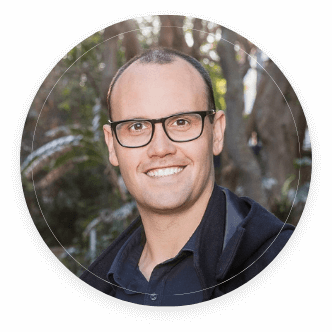The Loss of My Client’s Midas Touch
To shed more light on this matter, let’s delve into the story of one of my clients.
A prosperous entrepreneur in his earlier years, this gentleman epitomised the concept of the Midas touch. He was the personification of opportunism, spotting potential everywhere he turned.
Armed with a successful business, he had a steady cash flow that enabled him to construct an impressive asset portfolio independent of his business.
A prime example of a self-made man, he enjoyed the financial freedom his assets brought him. But, unfortunately, he belonged to the old school of thought regarding wealth management.
With age, my client grew increasingly carefree about the inherent risks associated with his business projects.
Eventually, he was involved in a project that saw him taking shortcuts. This decision ultimately led to business liquidation and personal bankruptcy, causing a substantial reduction in his wealth.
The financial catastrophe he dealt with was a severe blow to his spirit. He lost his mojo, and the confidence to restart his business evaporated. For years, he focused solely on staying afloat, surviving rather than thriving.
Thankfully, the situation has now stabilised. But in our recent interactions, it’s clear that my client is trying to regain what he has lost.
The investments he contemplates are fueled by an almost desperate need to reclaim what was once his. These include:
- Development sites
- High-risk joint ventures
- New business ventures necessitating considerable startup capital
But here’s the problem: he is at a stage where such high-risk investments might not be the best course of action. He and his wife have already endured significant financial strain.
Unfortunately, my client’s story isn’t an isolated incident but a widespread phenomenon.
It serves as a reminder of the inherent dangers of risky ventures, particularly when retirement is just around the corner.
In my experience, there are typically two situations that individuals nearing retirement find themselves in.
First, they neglected wealth building until it was almost too late, and now they’re scrambling to make up for lost time.
Second, they’ve made disastrous investment decisions and feel compelled to recoup their losses.
If this scenario resonates with you, or you know someone who might be in a similar situation, here are three key principles to consider:
Principle #1: Beware of Pride
Pride can be our downfall, especially when it comes to finances.
I’m not talking about hubris—the overconfidence that often results in a catastrophic fall—although that, too, can be dangerous.
I’m referring to the refusal to admit when we’re in trouble—the unwillingness to accept that we need help.
Such pride often results in a mismatch between our actions and our actual needs. So, if your runway to financial retirement is short, consider taking impactful, concise action.
You might need to get back to basics and put your finances in order.
Principle #2: Sustainability Over Risk
If you’re forced to compromise your lifestyle in retirement because you have less wealth than you’d like, that’s still better than dependency.
Dependency here refers to a situation where you’re reliant on others financially, be it the government, a pension, or even your children.
Many seek the biggest possible gain in the shortest time rather than focusing on long-term, sustainable returns.
For example, if your living expenses currently amount to $150,000 per year and, playing it safe, you only have $75,000, many people would feel that’s not enough.
This mindset often leads to risky ventures that could result in a complete loss of capital. However, it’s better to accept less-than-ideal returns than to risk everything.
Principle #3: Minimum Viable Capital
Finally, consider your minimum viable capital.
The objective is to use the least amount of capital and risk to achieve your desired financial outcome.
It involves thinking outside the box on behalf of someone else, as we did in the ‘Million Dollar Mixing Desk” game I invented for my clients.
The essence of the game was to devise a strategy to help an older couple live in Italy for two years, starting with minimal passive income.
The winning team achieved the desired outcome using the least capital, rocking the financial boat as little as possible.
Final Thoughts
In conclusion, the question we set out to answer today is complex. But, yes, time may be a pressing factor for late starters or those recovering from financial loss.
But the important aspect to remember is that as we age, our risk tolerance and ability to recover from financial setbacks diminish, so a cautious approach should be adopted when considering high-risk investments in the later stages of life.
Remember, taking on higher risks does not always equate to higher returns.
Always keep an eye on your financial health, never lose sight of your financial goals, and, more importantly, understand your risk tolerance.
Your peace of mind and financial security are worth it.










